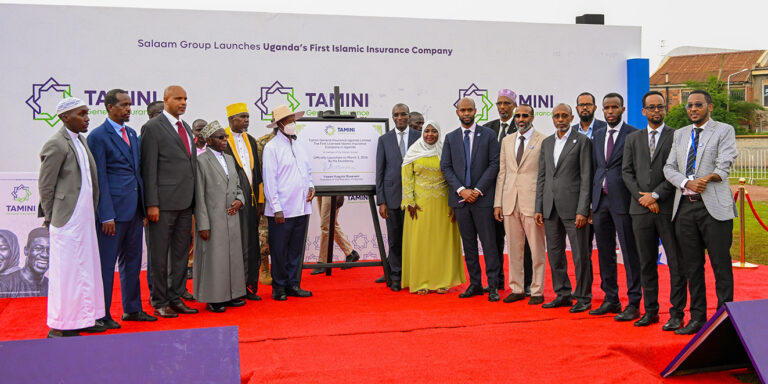
Ugandan youth prepare to board a plane to the Middle East for casual work
HABARI DAILY I Kampala, Uganda I Uganda’s privileged position where it earned up to $1.42 billion in remittances in the year leading up to January 2024, is now on shaky ground following the announcement by the United Arab Emirates (UAE) that the has placed Uganda on its visa ban list for 2026.
This ban will practically prevent Ugandan citizens from applying for tourist and work visas to the Gulf country.
Although it has been announced that the ban does not impact Ugandans currently residing in the UAE with valid visas, it will drastically have an impact on the $500 million (35% of remittances), coming from the Middle East where domestic workers, security personnel, and construction workers are employed.
While it is difficult to isolate earnings specifically from casual workers, these figures include contributions from a range of professions, most of which don’t even require academic qualifications.
Although this move is part of a broader ban affecting nine countries, including Afghanistan, Libya, Yemen, Somalia, Lebanon, Bangladesh, Cameroon, and Sudan, Uganda will be one of those to be severely impacted, since it sends up to 100,000 [casual] workers.
BOU’s take
Recent data from Bank of Uganda has indicated that diaspora remittances have seen a drastic growth in the last 10 years, becoming a key life line as a foreign exchange source.
BOU further notes that remittance inflows have more than doubled from $901.87m (Shs3.2 trillion) in 2015 to $1.42 billion (Shs 5.1 trillion), which is a $527.47m (Shs 1.8 trillion) increase in absolute value.
The central bank also revealed that in the last 24 years, remittance inflows have grown by 410% from $348.57 (Shs 1.2 trillion) in 2001 to $1.42 billion (Shs5.1 trillion). BOU further says that growth in diaspora remittances has continued to spiral with an annual average of $1.27b (Shs 4.5 trillion).
It further points out that inflows grew to $1,16b (Shs 4.1 trillion) in 2017, jumping to $1.33 billion$1.33b (Shs 4.7 trillion) and $1.42b (Shs 5.1 trillion)I in 2018 and 2019 respectively
Why are diaspora workers important?
Labor externalization remains one of Uganda’s main sources of unemployment, helping government to absorb hundreds of unemployed youth.
Diaspora workers, are now an important foreign exchange engine that churns in billions of green Burk. They now compete perfectly in terms of foreign exchange earnings with key sectors of the economy which include tourism and commodity exports such as coffee, tobacco, among others.
Figures do not lie. Data shows that earnings from tourism stood at $1.52b (sShs5.4 trillion) in the 12 months to March 2025, while coffee receipts stood at $1.54 billion (Shs 5.5 trillion) in the year ended December 2024, remittances might skyrocket up to $2 billion in the next two years.
Remittances have been described as an engine of economic growth and investment. Projections are now showing that these remittances are likely to spill over into investments, whereby Ugandan will be able to set up cottage industries.
Information from the ministry of Gender, Labor and Social Development shows that Saudi Arabia takes more than 89% of Uganda’s migrant workers, and has become a destination of choice.
The Gender Ministry, which regulates labor externalization showed that in the two years to December 2023, at least 120,459 migrant workers left Uganda in search of employment.
It further says that the majority of these were women at 77.5% or 109,773, compared to 10,686 males. It adds that of the 120,459 migrant workers, 107,448 went to Saudi Arabia during that particular period.
Qatar was number two, taking in up to 6,086 or 5.05 % in the two years, while the UAE took in 4,457, Somalia took in 1,108, Iraq 1,081, Kuwait 262 and Bahrain 6.
Officials revealed that Uganda has more than 110,000 people every year who go out to look for jobs. The biggest destinations are Saudi Arabia, Qatar, Yemen and other parts of Europe and Americas.
Data also show that there are currently abot 390 companies licensed to conduct labor externalization as of December 2023, and that government earned the largest income from local and foreign job orders.
There is hope
Officials at Uganda’s foreign affairs ministry however pointed out that there is still hope following the UAE pronouncement.
Henry Okello Oryem, Uganda’s minister of state for foreign affairs in charge of international cooperation, said that the move by the UAE to tightening visa requirements for Ugandan nationals is a result of growing concerns over immigration abuse and criminal activities by some travelers.
He said that according to Uganda’s ambassador in the UAE, there is no total ban, although they are going to put restrictions on Ugandans
Oryem said the UAE authorities are primarily targeting individuals considered at high risk of overstaying their visas or engaging in unlawful activities.
He further said that this is not a blanket prohibition, and that some Ugandans will still go, based on the risk of a person overstaying their visa or failing to respect the laws and culture of the UAE.




